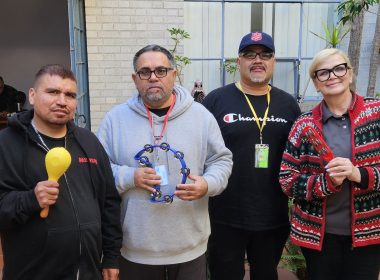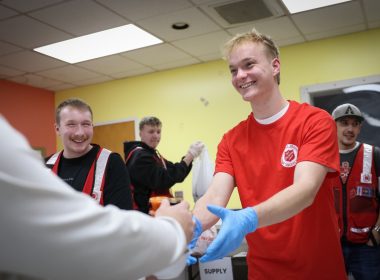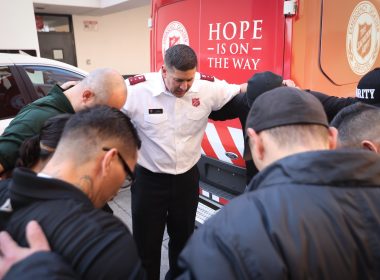Open Road to Tomorrow”
by Commissioner David Edwards –
Melbourne, Australia, was the location chosen for the just-concluded 1998 International Conference of Leaders of The Salvation Army.
The capital city for the State of Victoria, Melbourne has a population of 3.5 million people of which one in every four are migrants. Given the multi-cultural nature of this gathering of Salvation Army leaders, Melbourne would seem to have been the ideal location for the conference. It was the first time that this conference was held in the Southern hemisphere.
Melbourne is also the headquarters for the Salvation Army Australia Southern Territory. Under the leadership of Commissioners Norman and Marion Howe, the Southern Territory has begun a process known as “Future Search” intended to bring about renewal and a recapturing by Salvationists of their passion for the mission of our Lord Jesus Christ.
Salvationists of the Southern Territory could easily identify with the theme of the Leaders Conference–“Open Road to Tomorrow.”
Conference agenda and purpose
This is the second conference of leaders called by General Paul A. Rader during his term in office. The first was held in Hong Kong in April 1995, just eight months after Rader was installed as General. Apart from expressing solidarity with the people of Hong Kong and focusing attention upon the giant Republic of China, that conference provided the General with an agenda for action during his term in office.
The conference this year in Melbourne provided the General with the opportunity to report on his stewardship during the past three years to the international leadership of the Army world and at the same time engage the delegates in addressing some challenging issues facing the Army as it moves into the 21st century.
American leaders warmly welcomed
There were 122 delegates in attendance, representing every territory and command, including the leaders of the American territories. They were absent from the last conference, due to an unfortunate accident that took place just a week prior to the start of the Hong Kong conference. The Hinsons, the Irwins and the Watsons, who were among those involved in that accident, were warmly welcomed by their international colleagues.
Looking toward the future
In his keynote address, entitled Forward on the Open Road to Tomorrow, General Rader drew attention to the fact that “Leaders, by definition, are those who look further down the road ahead than do their peers.” That in looking toward the future, it was “our task as leaders to ask ourselves such critical questions as if we keep on moving along the path on which we now find ourselves, where will we be, what will we be, as an Army 10 or 20 years from now ?’ ”
Hong Kong affirmation and responses to concerns
He reminded the delegates of the list of priorities that came out of the Hong Kong Conference of Leaders in 1995 and which were published in the statement titled the Hong Kong Affirmation. That statement of affirmation reflected a number of concerns coming out of that conference.
The setting up of the Spiritual Life Commission, the strengthening of our partnering relationships in mission across the Salvation Army world, the call for a million soldiers marching into the new millennium etc., were the responses to some of those concerns.
This conference in Melbourne later heard from the chairman of the Spiritual Life Commission Lt. Colonel Bob Street, who delivered the report of the Commission.
The report was accepted by the Conference following some lengthy discussion.The pamphlet Move Forward in Freedom, covering the commission’s report, has now been published on the recommendation of the Conference. The delegates were also introduced to the publication Salvation Story, the newly published Handbook of Doctrine.
Issues of challenge for the future
The Conference was challenged to address such issues as the development of leaders for the future; our commitment to a style of leadership that places service at the center of its focus; issues having a bearing on the status of officership, particularly this matter of the “joint covenant,” the continuing debate over the status of women officers; the challenges presented by the younger generation; the challenge facing us in ministering in multi-cultural world; and the issue of funding for the International Army, a vitally important matter given the increasing demands of the Salvation war.
As with all Salvation Army gatherings of this nature, there was time for reflection and study of God’s word, the sharing of information and, most importantly, sharing fellowship, renewing acquaintances and making new friends.
Some very significant issues were raised and discussed during this Conference in Melbourne and might be regarded as a watershed occasion for our Church as it stands poised to move ahead into the 21st century.
The call–you can
At the conclusion of the Conference, the delegates issued a statement calling on all members of the Salvation Army family ‘to be ready to become all things to all people if by any means they might save some'(1Corinthians 9:22). In matters of mission, the message from the conference was not ‘You can’t.’ The message is “you can.”










